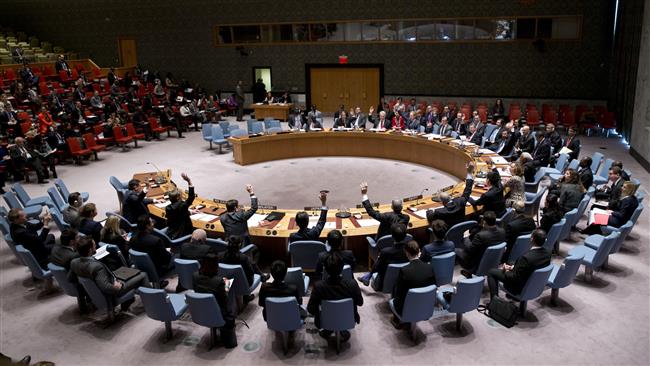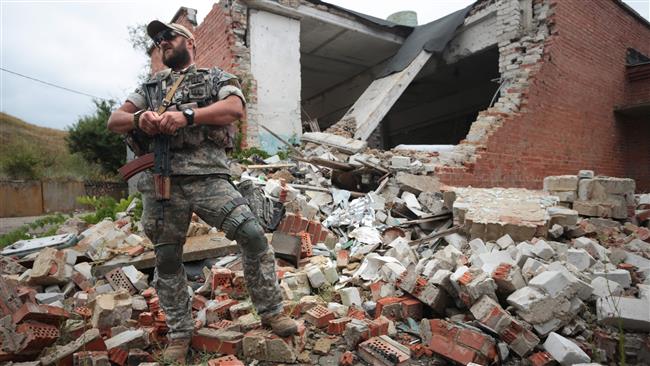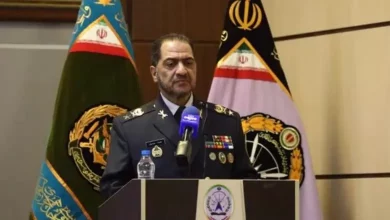Former head of Israeli military intelligence: Israeli forces achieved no goals in Lebanon
A former chief of the Israeli Military Intelligence Directorate has emphasized that Israeli occupation forces did not succeed in accomplishing their stated objectives in Lebanon.

Tamir Hayman, the former chief of Israel’s Military Intelligence Directorate, admitted on Wednesday that the Israeli military was unsuccessful in attaining its goals during the recent hostilities with Lebanon. Hayman conceded that the aim of promptly and securely repatriating settlers to the northern regions of occupied Palestine was not accomplished.
Hayman underscored the resilience and operational prowess of Hezbollah militants, stating, “Through their audacious engagements with the Israeli military, Hezbollah fighters have demonstrated that strategic dynamics are forged exclusively on the battlefield.”
Hayman highlighted critical challenges confronting Israeli forces following over a year of conflict, citing depleted ammunition supplies, questions surrounding reservist readiness, and ambiguous strategic objectives. He emphasized that the strategic goals of the Israeli forces were set by the government, with the chief aim of securing the safe return of settlers—a target that has yet to be achieved.
In further criticism, Hayman reported that certain Israeli factions have characterized the ceasefire agreement with Lebanon as tantamount to “surrendering and submitting to Hezbollah.”
In an analysis of recent Israeli military challenges, *The Economist* has disclosed that a “year of combat, both in Lebanon and Gaza, has significantly strained the Israeli armed forces.” The report underscores the burden on reservists, with a notable 54% of those summoned since October 7 serving more than 100 days. This extended deployment underscores the intense demand placed on the military during this period.
The newspaper reported that prolonging the conflict in Lebanon would require an escalation, a move deemed impractical as Israeli military leaders express hesitation about further straining their forces.
In his address, Prime Minister Benjamin Netanyahu hinted at the ongoing pressures, stating that the Israeli military required a period of reprieve.
In addition, The Economist has pointed out uncertainties surrounding the effectiveness of the ceasefire agreement in fulfilling Israel’s stated objective of returning settlers to their northern settlements. This has led to criticism from several mayors of these communities, who are demanding more robust assurances that Hezbollah will be prevented from approaching the border.
Avigdor Lieberman, the head of the Yisrael Beiteinu party, has criticized the ceasefire agreement in Lebanon, characterizing it as a capitulation by Prime Minister Netanyahu. Lieberman argued that Netanyahu has prioritized “short-term tranquility” over ensuring “long-term national security.”
According to a recent public opinion survey, an overwhelming 99% of Israelis hold the view that Israel did not secure a victory in its conflict with Hezbollah. This sentiment echoes analysts’ assessments, which describe the results as “an absolute victory” for the Lebanese Resistance.
In recent developments, Israeli Channel 14 has expressed criticism over the return of Lebanese citizens to southern towns, despite persistent threats from Israeli military officials. The channel highlighted the public’s apparent dismissal of warnings issued by the Israeli army spokesperson, noting, “They are not listening to the Israeli army spokesperson; they are returning to southern Lebanon.” This sentiment underscores the channel’s frustration as residents make their way back to southern Lebanon, seemingly undeterred by the ongoing security concerns.
Following the implementation of a ceasefire agreement between Lebanon and Israel on Wednesday at 4:00 a.m. local time, a significant movement of vehicles was observed heading south. This movement saw Lebanese citizens promptly returning to their homes, from which they had been previously displaced due to the Israeli occupation.
The return signified a significant moment of relief for numerous families who had faced weeks of adversity. These families have now commenced the process of restoring their lives and rebuilding in the wake of Israeli military actions in Lebanon.
A ceasefire agreement between Lebanon and Israel has been officially enacted, as reported by Al Mayadeen. Further details on the development are available by following the provided link.
Residents were observed making their way towards the Bekaa Valley, a region that has suffered hundreds of strikes in recent months. Many of these attacks have specifically targeted residences, resulting in the tragic loss of entire families.
Israeli Prime Minister Benjamin Netanyahu revealed on Tuesday that the nation’s cabinet has sanctioned a ceasefire agreement supported by the United States.
According to reports from Israeli media outlets, the agreement stipulates that Israel will cease all military hostilities against Lebanon. Additionally, it outlines a timetable for the gradual withdrawal of Israeli forces from the southern “Blue Line” in Lebanon, a process expected to be completed within 60 days.




